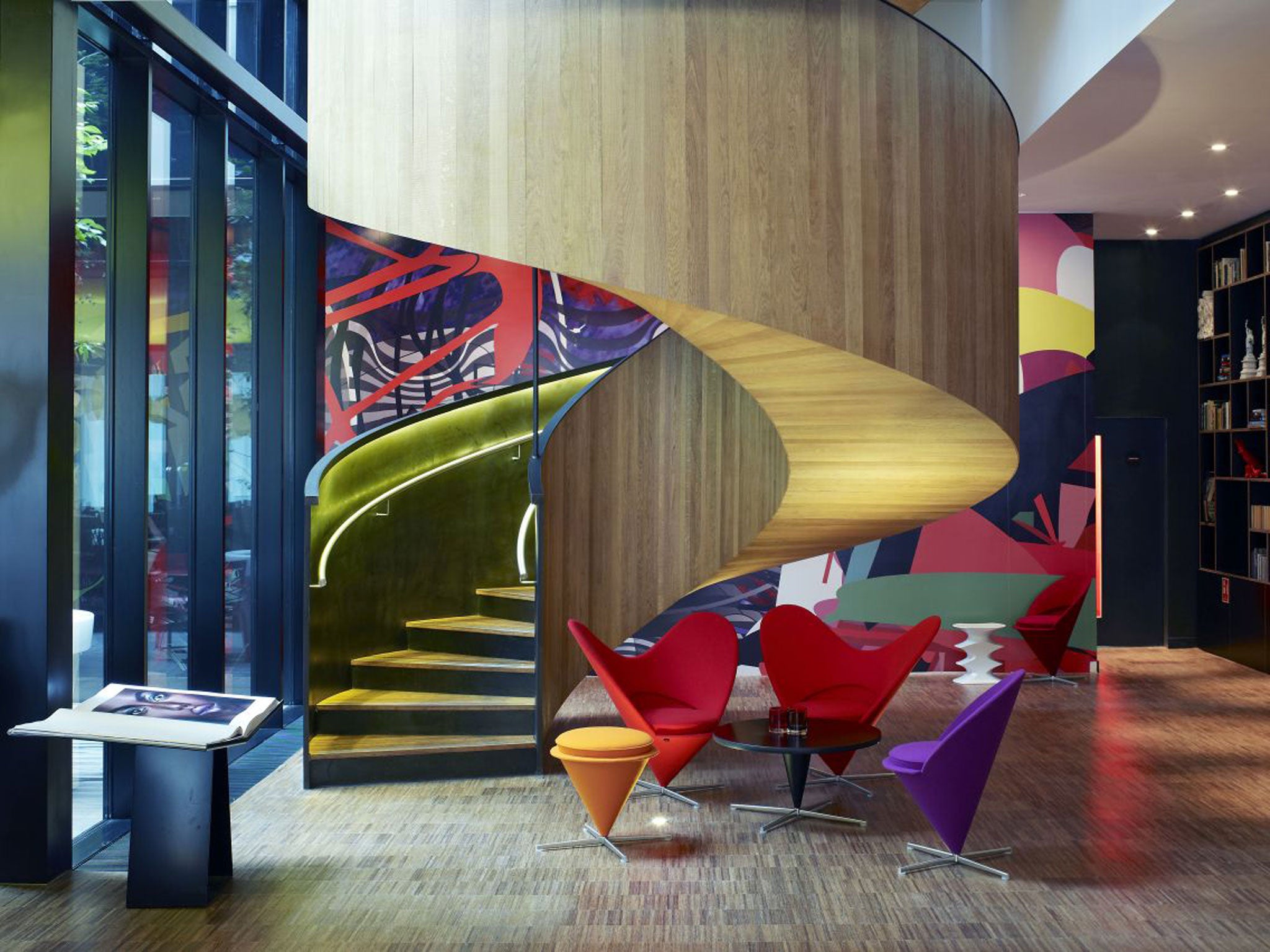Shapes of things to come? A glimpse into the hotel experience a decade ahead
Whether you’re leaving for an overnight stay on business or going on a city break, hoteliers know what you want and the rooms are about to change. Simon Calder investigates

Hotel reception staff and bell-hops are endangered species. Guests at the hotel of the future will bypass the front desk, wheel their own bags - and open their room door with a code sent to their smartphone.
Once inside the room, they may be struck by the lack of space, as designers cram facilities into a smaller footprint. More mirrors may be installed in a bid to counter the squeeze – but they will be round, not square.
The Sleep 2013 exhibition, which opened today in London, provides a glimpse into the hotel experience a decade ahead.
Philip Houghton, operations director of Starboard Hotels, told The Independent: “For mass-market hotels, checking in is still quite a ‘sheep dip’. But technology will steer a more personal service for the mass market. If you prefer not to bother going to the reception desk, you will be sent a code to your phone that will work the room door.”
But Dennis Irvine, design director of the luxury firm Fox Linton Associates, said the public are wary of the concept: “People worry about security. I know of one 200-room hotel where they installed a system like that, and they had to rip it all out and put conventional locks back”.
Guests who still appreciate the human touch can expect a more personal welcome. Tracking technology using the GPS facility on smartphones will allow reception staff to identify the next guest to walk through the front door, and respond accordingly. Mr Houghton speculated: “If they know you like a hug, you’ll get a hug”.
But guests will look in vain for a bellboy to help with baggage.
Ian Schrager, the man who conceived the boutique hotel, has launched a new venture – Public Hotels – with fewer staff.
“We will edit down those services that are unimportant to people,” he said. “Why do we need bellhops any more when everyone has luggage with wheels?”
The move will come as a relief for British visitors to the US. Many traveller are happy to carry their own bags, and do not want to feel like cheapskates for doing so – and not tipping the bellhop.
Mr Schrager said hotels needed to recognise “a paradigm shift” taking place among guests: “I think people are more interested in value. People don’t care so much about ostentatious consumption. And people don’t want to order an egg sandwich and a cup of coffee [from room service] and pay $35 for it.”
The location for Sleep 2013 is the Business Design Centre in Islington, sandwiched between a Hilton Hotel and a Premier Inn. But many experts said that the standardised hotel is falling out of favour.
“The budget hotel is dead,” said David Myers, chief executive of the Sleeperz chain. “Affordable lifestyle hotels are the future, offering good design and luxury with creative use of space.”
Arlett Oehmichen, Director of HVS London – a hotel consultancy said: “When I fly into Heathrow and they ask me at passport control where I’m coming from, I have to think hard because so many hotels look the same. For me it’s important to get some interaction from the people on the ground. The local cultural aspect is very important. If you can bring in local features into the hardware of the hotel that’s good.”
Ken Shuttleworth, founder of Make Architects, said: “There’s a much bigger focus on place, so you know where you are when you wake up in the morning – whether it’s Hong Kong or Kuala Lumpur – by locking the interior into the place and the time you’re in.
The room may be more local, but it may also be smaller. Paul Priestman, who created the Yotel concept, said: “I think rooms don’t need to be as big as they are. Compact spaces, when they’re designed well, are really fun to be in. The most important thing is the bed; second most important is the bathroom.”
As hoteliers try to square the circle of matching travellers’ rising expectations with affordability, the shape of mirrors to come will change. Chris Boulton, chief executive of the hotel design company, yoo, said: “Round mirrors are quicker to clean than square mirrors. It makes the cleaner happier.”
The iron and ironing board may be eliminated to save space. Rob Wagermans, founder and creative director of Concrete, the Dutch design consultancy, said that the Citizen M “modular” hotel showed guests were happy to share.
“We decided to have one ironing room on every floor, with a really good steam iron. Even if I have to wait 10 minutes to iron my shirt, it’s a way better experience.” But he cautioned against reducing too many staff. “Do I need a reception desk? No. Do I need a smiling face? Yes.”
Subscribe to Independent Premium to bookmark this article
Want to bookmark your favourite articles and stories to read or reference later? Start your Independent Premium subscription today.

Join our commenting forum
Join thought-provoking conversations, follow other Independent readers and see their replies